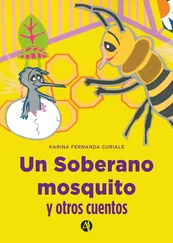She had refused his invitation and in the end he had just shrugged, leaving her alone, going back to his typewriter in the cool of his study. It was hot. For some reason the fans had all stopped working. Perhaps the generator had broken down again. He would have to get Sugi to look at it. Every now and then as he worked he would look up and catch a glimpse of her faded lime-green skirt translucent against the extraordinary light of the untamed garden. She folded and rearranged herself until from where he sat she was a smudge of green and white and black. He could not see her face; it was hidden by her dark hair. He found her presence disturbing. How was he supposed to work? Surely it must be lunchtime? He half hoped she would stay to eat with him. Sometimes she did; at other times, although she hesitated, an inner tempo seemed to call her, guilt perhaps, a sudden memory of an uncompleted errand for her long-suffering mother. Every time Theo asked her to stay for lunch. He waited, unaware that his breath was bated, for her reply, knowing only his irrational disappointment if she went home.
He had decided then, the best thing to do was to commission her to paint him. It was clear that, once voiced, she would not give up the idea, so one evening he strolled over to Mrs Mendis with the suggestion. Mrs Mendis welcomed him with some aluva and coffee. He told her he wanted to commission Nulani to paint his portrait. He would like to pay her if Mrs Mendis did not mind. Mrs Mendis did not mind. Mr Samarajeeva was extremely kind. She just hoped Nulani would do a proper job.
‘The girl is a dreamer,’ said Mrs Mendis. ‘She does not talk much and she is stubborn. If you can get her to do anything it will be a miracle. Most of the time, if there is any work to be done, she disappears. She won’t help in the house or with any of my sewing. How am I to make a living, with no one to help me?’
Having started her complaints, Mrs Mendis found it curiously difficult to stop. Her thin, high voice rose like the smoke from a mosquito coil.
‘I am a widow,’ she said. ‘Has Nulani told you? Has she told you my husband was set fire to during the rioting in the seventies? They threw a petrol bomb at him. Aiyo, we watched as he went screaming down the Old Tissa Road. Fear kept all the people hidden behind closed doors.’ Mrs Mendis waved her hands about in distress. ‘Everyone watched through the shutters of their houses,’ she said. ‘But no one came to help.’
Harsh sunlight had pressed itself on the edges of the house and then Mrs Mendis had run screaming into the street, chasing hopelessly after her husband, but it was too late. He lay blackened and burnt; clear liquid oozing out from his staring eyes, his body charred, the stench of flesh filling her open-mouthed screams.
‘The neighbours came out of the houses then and pulled me away,’ she said.
They had been fearful she might throw herself on to the flames. By the time the ambulance came he was beyond help.
‘Luckily,’ said Mrs Mendis, lowering her voice, ‘my son Jim was somewhere else and did not see his father’s life as it left this world.’
Lucky Jim. ‘He had been so close to his father,’ she said. ‘The shock is still with him.’
Only the girl had been at home. Mrs Mendis wasn’t sure how much she had seen. Always quiet, she became mute after that.
‘She’s difficult,’ said Mrs Mendis, ‘obstinate and odd.’
Theo Samarajeeva, who had not meant to stay for long, looked around for escape. There was no sign of Nulani, but something about the stillness of the air made him certain she was listening.
Walking home he turned several times, convinced he was being followed. But the road was empty. The air was choked with the heavy scent of frangipani. As he entered his house he noticed Sugi had lit some oil lamps. Theo could see him fixing a few cheap Chinese lanterns to the trees. He poured himself a whisky, and was still listening to the ice crackling in the glass when he saw her. Standing in his doorway holding out a branch of blossom, the rich scent filling the room, her smile wide, her eyes as bright as the new moon.
She came almost daily after that, before school, after her evening meal, at odd unexpected hours, nearly every weekend. A notebook was filling up with small studies of him. Sometimes she showed him what she had done. She seemed to be trying to record every slight movement of his face, he thought, amused. Such was the minute detail of the drawings. He was astonished by her perception. Thin pencils, stubs of charcoal, delicate brushstrokes, whatever she used, all had the same fluid quality, the same effortless logic as they moved across the page. Each time she showed him what she had done, he was astonished all over again.
‘Nulani,’ he asked once, after looking at these drawings for a long time. ‘Why me? Why draw me? Why not someone younger, your brother’s friends perhaps?’
He was genuinely puzzled. But she had only laughed.
‘Wait till you see the painting!’ she promised.
Now he watched her as she drew him from the corner of the veranda.
‘Why don’t you sit somewhere better, child?’ he asked again. ‘You can’t possibly see me clearly from where you are!’
‘I don’t want to see you, Mr Samarajeeva. I’m learning to draw you from memory.’
‘Will you please stop calling me Mr Samarajeeva.’
‘OK, Mr Samarajeeva.’
He never knew if she was teasing him. He had a feeling she could read his mind, that she liked to make him feel older than he felt already, because it amused her, because in fact his age made no difference whatsoever to her.
‘I want to be able to draw you from memory, with my eyes closed,’ she said, ‘so I will never forget you.’
Startled, he stood up. Sugi came in to announce lunch was ready. Lunch was some fresh thora-malu , seer fish, from today’s catch.
‘When will you start painting?’ he asked while they ate. A small beam of sunlight fell on her face. Her skin glowed with a sheen of youthfulness. Through the curtain of thick hair her eyes were as bright as a pair of black cherries. He thought of all the years of living that lay between them, as heavy and as sweet as a piece of sugared coconut jaggery, irreplaceable, unexchangeable, for ever between them.
‘I have already started the painting, but I must draw more. Can I come here and paint?’
Theo laughed. ‘At this rate you will always be here. What will your mother say? She won’t be happy with that idea. She must want to see her daughter sometimes .’
‘I want to be here all the time,’ she said.
Theo looked at her. The beam of sunlight had moved and rested on the top of her head. Her hair was a sleek smoky black; it reminded him of the blue-black cat he and Anna had once had, in that other life. But all he said was: ‘I have to go to Colombo tomorrow, is there anything you need? Any paints I can try to get you?’
He did not tell her that he had done no work since she had been drawing him; he did not tell her that her presence in his house, like a beautiful injured bird, was distraction enough without the drawing. London seemed far away.
‘Has your mother seen the painting?’
‘No. Amma, my mother, worries too much all the time. She doesn’t have time to look.’ She seemed to hesitate. ‘Her worry is because she hopes.’
‘She hopes?’
‘She hopes things will not get worse than they already are. She hopes my brother does not leave, go to England. But she also hopes he does go because he will have a better life there. She hopes she will never see the things she saw once. So she does not look.’
It was the first time she had made reference to her father’s murder.
‘We are not like you,’ she said.
Читать дальше












